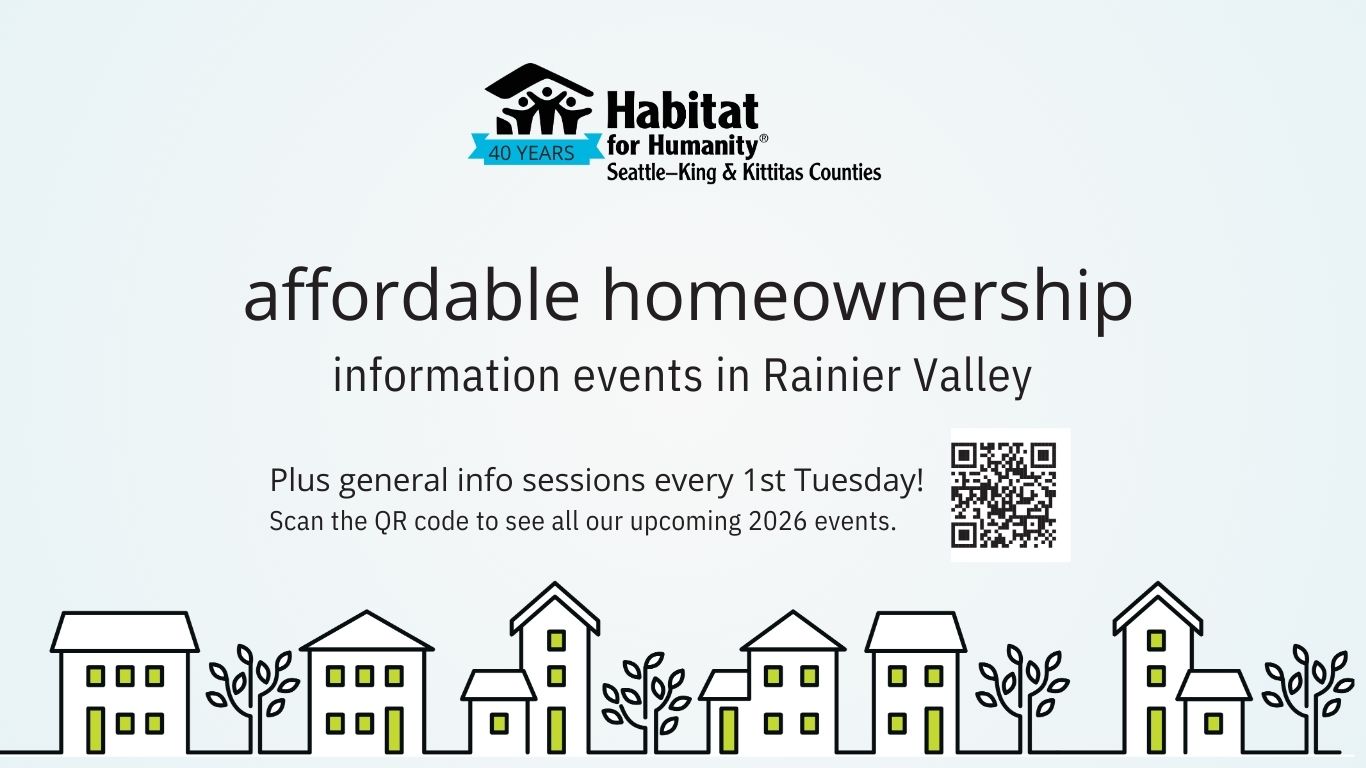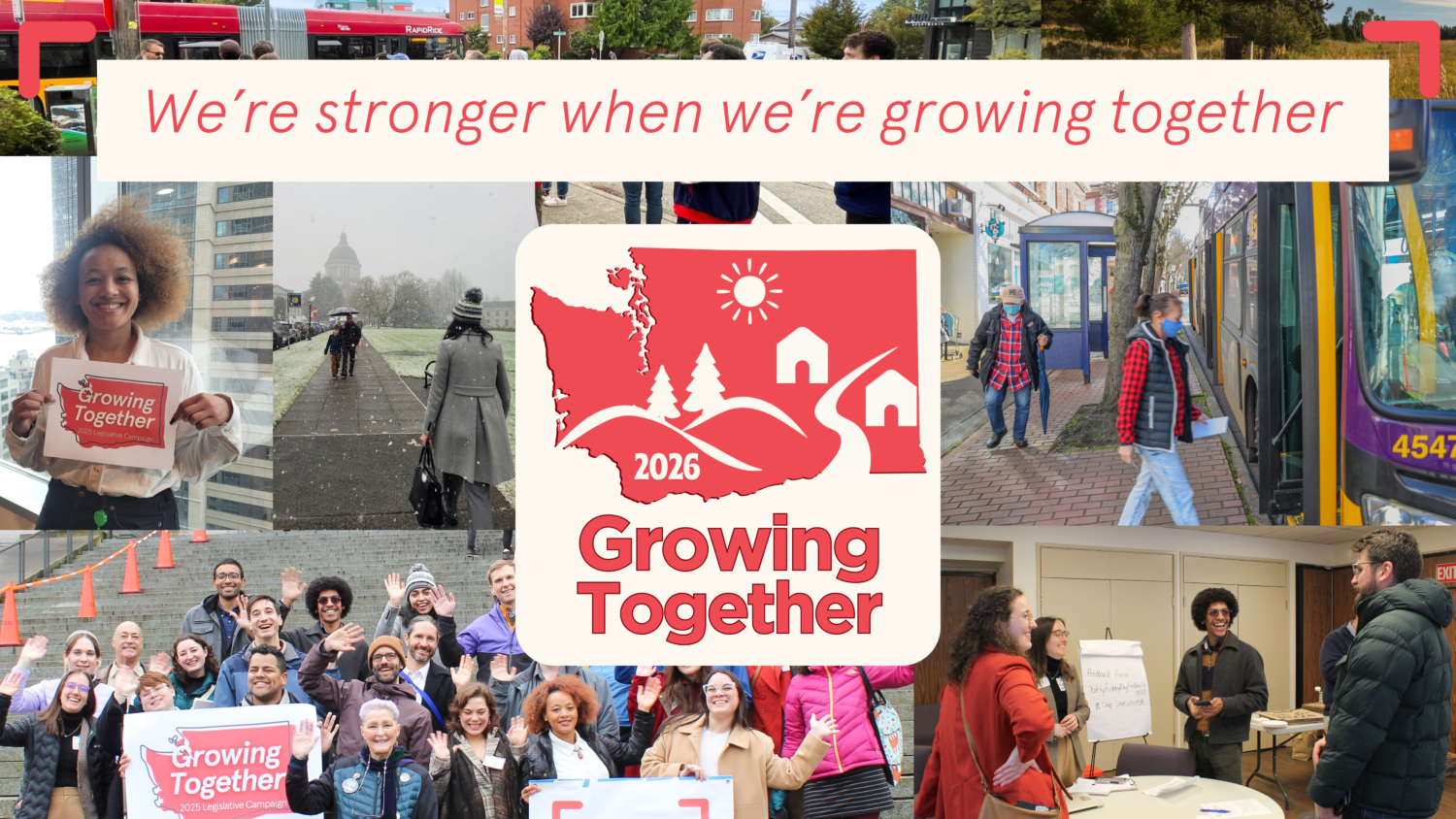Legislative Update March 8, 2019
Today we are throwing our support behind two very important bills, 2SHB 1923 and SB 5812, in the hopes they make progress this week.
We’re going to focus in this post primarily on 2SHB 1923, which aims to increase urban residential density through a menu of options, including a significant re-write of the Growth Management Act’s Housing Element policies to mandate action on housing for low-income residents. We wrote extensively on this bill in our blog post from February 8th, and it has undergone some changes since then – most notably that jurisdictions are no longer eligible for planning funds (something we hope to change – more on this later).
This is a good moment to step back and take a big-picture look at what we’re trying to achieve with this bill as it aims to change the trajectory of housing planning in Washington cities. For too long, that trajectory has benefited those of us who live in privileged areas – myself included – and has failed to recognize that the things we prefer about the look and shape of our communities are the very same things that harm others – particularly POC, immigrant, working class folks and renters.
In the words Dr. Lisa Bates – associate professor at the Toulan School of Urban Studies & Planning of Portland State University – “…when we center our concerns on the people who are in the most precarious positions in our society, we will build out cities and regions in ways that provide access and housing stability, while also furthering our climate action goals. We have to remain concerned about development patterns that tip us toward more segregated spaces, and understand that our planning has historically served the interests of white wealth creation by pushing poor and POC folks into, and out of places.”
HB 1923 aims to begin a course-correction on that historic planning by mandating a focus on housing options and housing affordability in the places we need it most – in proximity to services, transit and opportunity. Futurewise is proud to support this bill, and to continue working with legislators to refine the details.
With regards to the details, it’s important to note that we do not want the planning required by this bill to be an unfunded mandate for jurisdictions. Those curious about what funding for community planning can produce should look no further than the Our Valley, Our Future effort that is taking place in Wenatchee (particularly their housing report). Wenatchee is the tip of the spear for the Eastern Washington housing crisis, and their community-centered approach is impressive for its breadth, depth, and ability to draw in bi-partisan support. The legislature and the Governor’s office supported their effort with $140K in 2018, and we need to repeat that investment for every community taking on HB 1923’s planning challenges.
Lastly, you’ve heard us stand up for the HEAL Act in past week, and this week it passed out of the Senate! Stay tuned for further updates about how you can ensure that the HEAL Act passes in the House.
Thank you for continuing to read about and support our work through this second half of the 2019 Legislative session.


